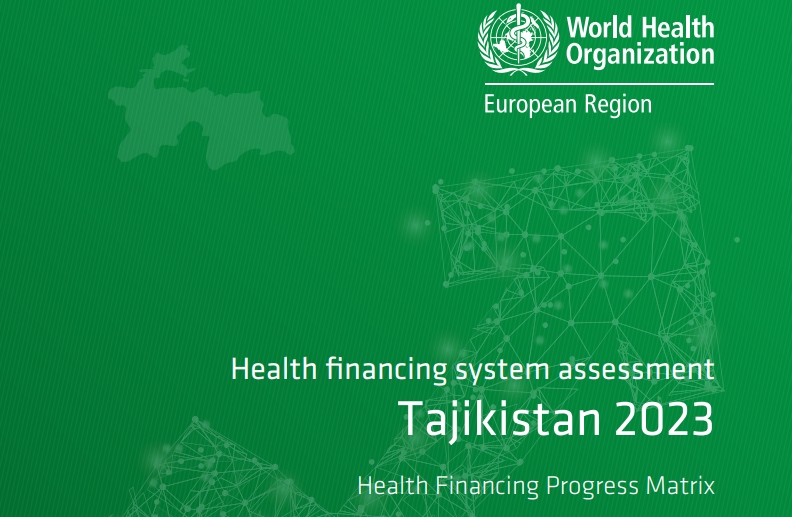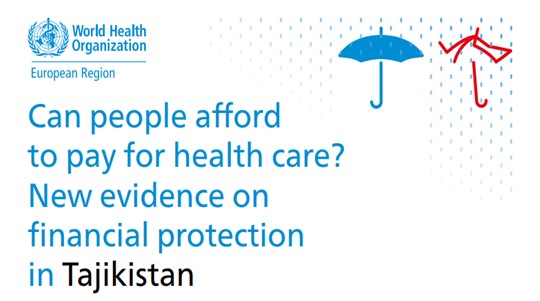This four-page summary report from WHO gives a snapshot of financial protection in Tajikistan. It provides facts and figures indicating a high burden from financial hardship when people in Tajikistan use health services and pay out of pocket.
The document, titled “Can people afford to pay for health care? New evidence on financial protection in Tajikistan: summary”, became available at WHO website on February 20, 2024.
Key findings from this summary report by WHO include the following:
- The incidence of catastrophic health spending in Tajikistan is one of the highest in Europe:
- In 2022, 18% of households experienced catastrophic health spending.
- Households in the poorest consumption quintile are consistently most likely to experience catastrophic health spending.
- The health services most likely to lead to catastrophic health spending are outpatient medicines and, to a lesser extent, inpatient care.
2. The out-of-pocket payment share of current spending on health in Tajikistan is among the highest in Europe and central Asia:
- In 2021, out-of-pocket payments comprised 64% of current spending on health.
- Heavy reliance on out-of-pocket payments is a direct result of low levels of public spending on health (2% of GDP in 2021)
- Such a high share of out-of-pocket payments also reflects significant gaps in health coverage.
- Due to underfunding of publicly financed health care, informal and other direct payments accounted for 47% of the revenue of health facilities in 2018, while formal co-payments accounted for 6% (Neelsen et al., 2021)
WHO advises the following to improve financial protection in Tajikistan:
- “The Government should focus on reducing the health system’s very heavy reliance on out-of-pocket payments and expanding the benefits package for primary care… More government spending should be allocated to health to improve access to comprehensive primary care services, including better access to outpatient prescribed medicines and diagnostic tests for the whole population.” WHO reminds that currently, public spending on health as the share of the government budget is 7% (2021), which is low compared to other countries in Eastern Europe and Central Asia.
- “The benefits package should be reviewed and adjusted to reflect population health needs and the cost-effectiveness of services… Less effective services should be excluded from the benefits package.”
- “Efforts should be made to raise awareness among the population regarding their entitlements, so that people do not pay more than they should…”
- “The list of groups eligible for exemption from co-payments for specialist care should be revised… to include people who would benefit from greater protection against out-of-pocket payment


